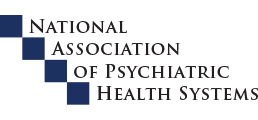Sierra Tucson offers effective, comprehensive treatment for individuals struggling with addiction and mental health concerns. Learn more about the signs and symptoms of Adderall addiction.
Understanding Adderall Addiction
Learn about Adderall addiction
Adderall is a central nervous system stimulant that is a combination of both amphetamine and dextroamphetamine. This prescription pill is used in the treatment of conditions such as narcolepsy and attention-deficit/hyperactivity disorder (ADHD). While this drug can work to relieve upsetting symptoms of those who struggle with such conditions, it can also create a recreational high for those who do not have a medical purpose for it.
Adderall offers recreational users an increased sense of wakefulness and alertness, as well as enhancing their ability to remain focused and achieve tasks quickly. Adderall can also offer some users feelings of euphoria, in addition to increasing their sense of self-confidence. This prescription medication is also effective in minimizing appetite, making it very appealing to those who want to slim down.
When individuals work in high-stress environments where a great deal is expected of them, or when students are struggling to finish all of their schoolwork, abusing Adderall can seem like a viable solution. It can help these individuals to feel more alert, awake, and prepared to complete all of their tasks. However, this same appeal can also cause individuals to fall down the deadly path of an Adderall addiction. Once this kind of addiction has developed, it can be very challenging to defeat without professional intervention. Thankfully, these interventions are available.
Statistics
Adderall addiction statistics
While the prevalence of Adderall abuse is not well known, there have been some estimates provided that show the increasing severity of this substance abuse problem. According to the National Survey on Drug Use and Health (NSDUH), almost 6.4% of college students between ages 18 and 22 use Adderall for recreational purposes. In addition, many women between ages 20 and 24 are also abusing this substance. Within the past ten years alone, the number of women within this age group who use Adderall for recreational purposes has risen by 264%. Furthermore, the American Psychiatric Association (APA) reports that between 5% and 9% of adolescents through high school-age have abused prescription stimulants like Adderall.
Causes and Risk Factors
Causes and risk factors for Adderall addiction
The causes and risk factors that can contribute to the onset of Adderall use disorder are briefly described below:
Environmental: According to the APA, the environment that surrounds an individual can play a dramatic role in impacting their likelihood of starting to abuse Adderall. Having others around who abuse illicit drugs or prescription medications can increase one’s risk for participating in similar behaviors. Also, having an unstable home life and/or being exposed to community violence as a child can increase one’s chances of developing an addiction to Adderall.
Risk Factors:
- Ease of access with which one can obtain Adderall
- Being surrounded by others who abuse Adderall or other types of substances
- Working in a highly stressful environment or feeling immense pressure to succeed academically
- Suffering from childhood conduct disorder
- Being highly impulsive or having other similar personality traits
- Growing up in an unstable home environment
- Abusing other types of substances
- Being a college student
- Suffering from comorbid antisocial personality disorder, schizophrenia, or bipolar disorder
- Being a female between the ages of 20 and 44
- Exposure to violence during childhood
Signs and Symptoms
Signs and symptoms of Adderall addiction
The signs and symptoms that one might display if abusing Adderall can vary from individual to individual, and may include some or all of the following:
Behavioral symptoms:
- No longer participating in activities that were previously enjoyed
- Hypervigilance
- No longer adhering to obligations at home
- Alterations in one’s performance at work or school
- Engaging in repetitive movements
- Change in social interactions
- Rapid speech
Physical symptoms:
- Insomnia
- Increase in bodily temperature
- Rapid heartbeat
- Appetite reduction
- Weight loss
- Nausea
- Dilated pupils
- Elevated or lowered blood pressure
- Seizures
- Vomiting
- Muscle weakness
Cognitive symptoms:
- Impaired judgment
- Experiencing the ability to hyperfocus or, alternatively, struggling to focus at all
- Cravings for more Adderall
- Confusion
Psychosocial symptoms:
- Anxiety
- Agitation
- Loss of emotional reactivity
- Psychological distress
- Anger
Effects
Effects of Adderall addiction
Abusing Adderall can elicit a series of negative effects in many areas of one’s life. Some of these effects can include, however are not limited to, the following:
- Irregular heartbeat
- Seizures
- Cardiac arrest
- Taking part in dangerous and/or illegal activities in order to illegally obtain Adderall, resulting in possible injury and/or interaction with law enforcement
- Increase in blood pressure
- Malnutrition
- Changes in temperament, resulting in a deterioration of close relationships
- Familial or marital discord as a result of no longer taking care of daily responsibilities
Co-Occurring Disorders
Adderall addiction and co-occurring disorders
When individuals are grappling with Adderall use disorder or any other kind of stimulant use disorder, it is not uncommon for them to also struggle with co-occurring mental health conditions at the same time. Examples of these conditions can include the following:
- Antisocial personality disorder
- Bipolar disorder
- Posttraumatic stress disorder (PTSD)
- Attention-deficit/hyperactivity disorder (ADHD)
- Schizophrenia
- Gambling disorder
Withdrawal and Overdose
Effects of Adderall withdrawal and overdose
Effects of Adderall withdrawal: If an individual has been consistently abusing Adderall and then suddenly stops their use, it is likely that a period of withdrawal will occur. Symptoms and effects of Adderall withdrawal can include the following:
- Vivid, often unpleasant dreams
- Fatigue
- Occupational impairment
- Social impairment
- Dysphoric mood
- Increased appetite
- Other functional impairments
- Psychomotor agitation
Effects of Adderall overdose: If someone consumes too much Adderall that their body is unable to metabolize, they will likely suffer an overdose. If this occurs, it is critical that medical treatment is obtained immediately in order to prevent a devastating outcome. Signs that someone might have overdosed on Adderall can include:
- Stroke
- Heart attack
- Seizure
- Excessive sweating
- Vomiting
- Hypertension
- Hallucinations
- Cramping
- Extreme confusion
- Panicked feelings
- Heart palpitations
- Chest pain
- Irregular breathing













